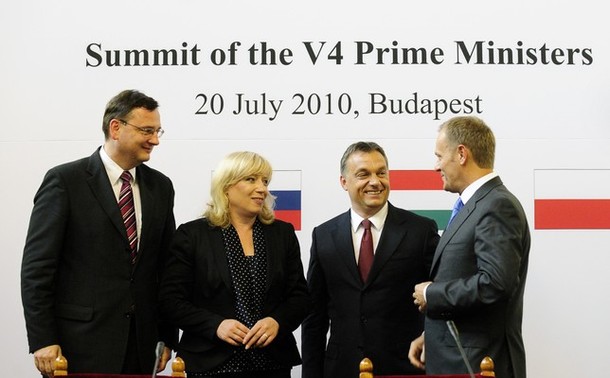
In an issue brief titled “The Value of the Visegrad Four,” former U.S. Ambassador to Czechoslovakia and the Czech Republic Adrian Basora examines the recently reinvigorated Visegrad Group–a regional grouping of Poland, Hungary, Slovakia, and the Czech Republic–as a possible channel for U.S.-Central European relations.
Basora identifies four issues that could affect whether a “special relationship” can be cultivated between the V4 and the United States. He discusses the advantage to the Central European countries of talking to Washington as a group rather than on an individual, bilateral basis.
Additionally, he addresses the value to Washington of nurturing a diplomatic channel with the V4, which shares many U.S. priorities and which has the potential to increasingly speak for other regional partners in Central and Eastern Europe. Basora also evaluates the influence of the V4 within the European Union and how that can positively influence U.S.-EU relations.
Finally, he explores whether the reinvigorated V4 can maintain its policy cohesion over the long-term, and what the group’s innate unity will mean for Washington policy planners.
This issue brief is part of the Washington-Central Europe Initiative, a collaborative think tank effort which aims to elevate the policy discussion in Washington about Central Europe and its role within the transatlantic community.
Washington-Central Europe Initiative
- Visegrad Group Political Directors’ Visit to Washington
- Central Europe’s Back: New Political Dynamics in Central Europe
- Moving the Transatlantic Partnership Beyond the Prague Agenda
Image: getty%208%2010%2010%20Petr%20Necas%20Iveta%20Radicova%20Viktor%20Orban%20Donald%20Tusk.jpg
